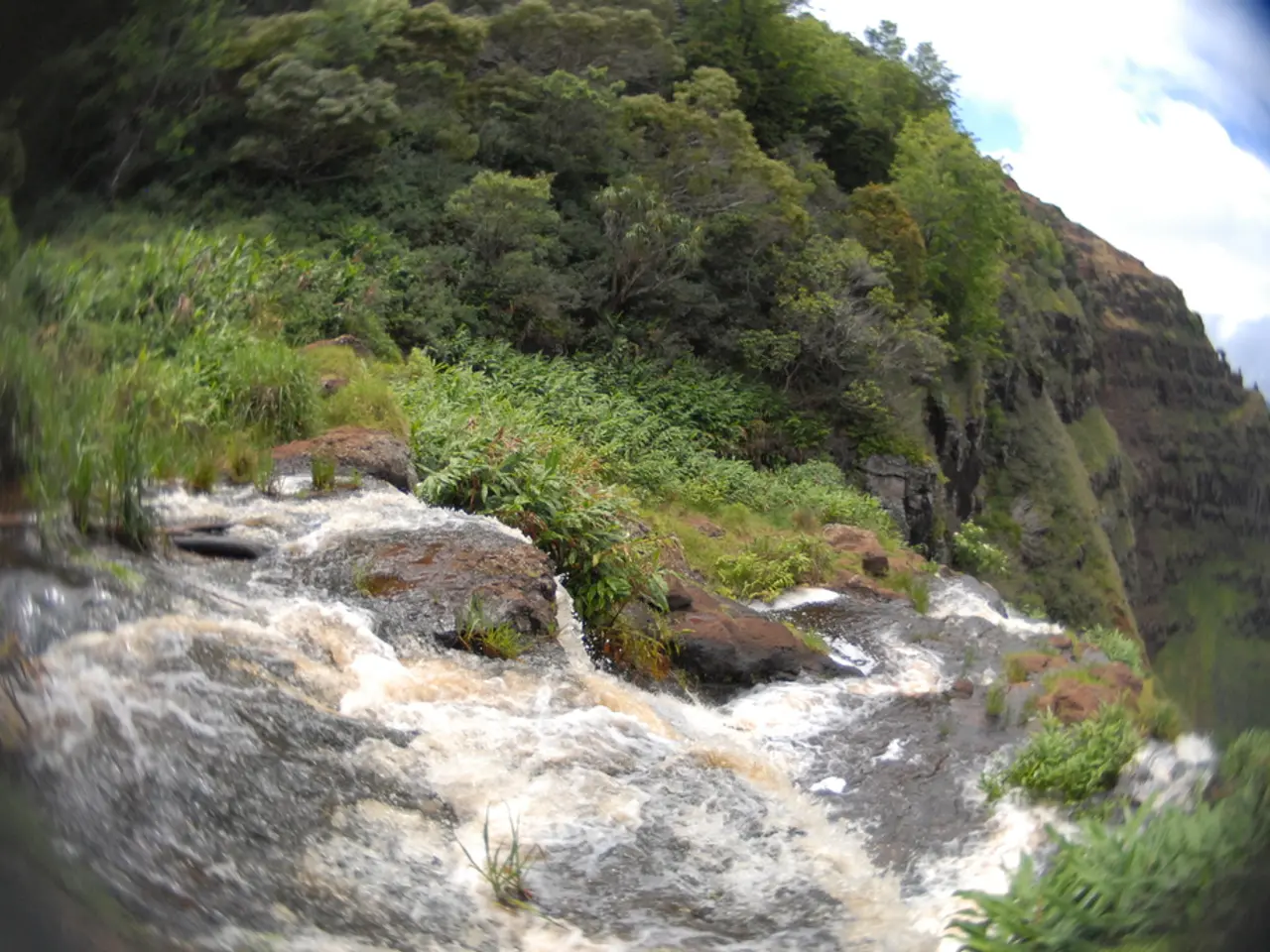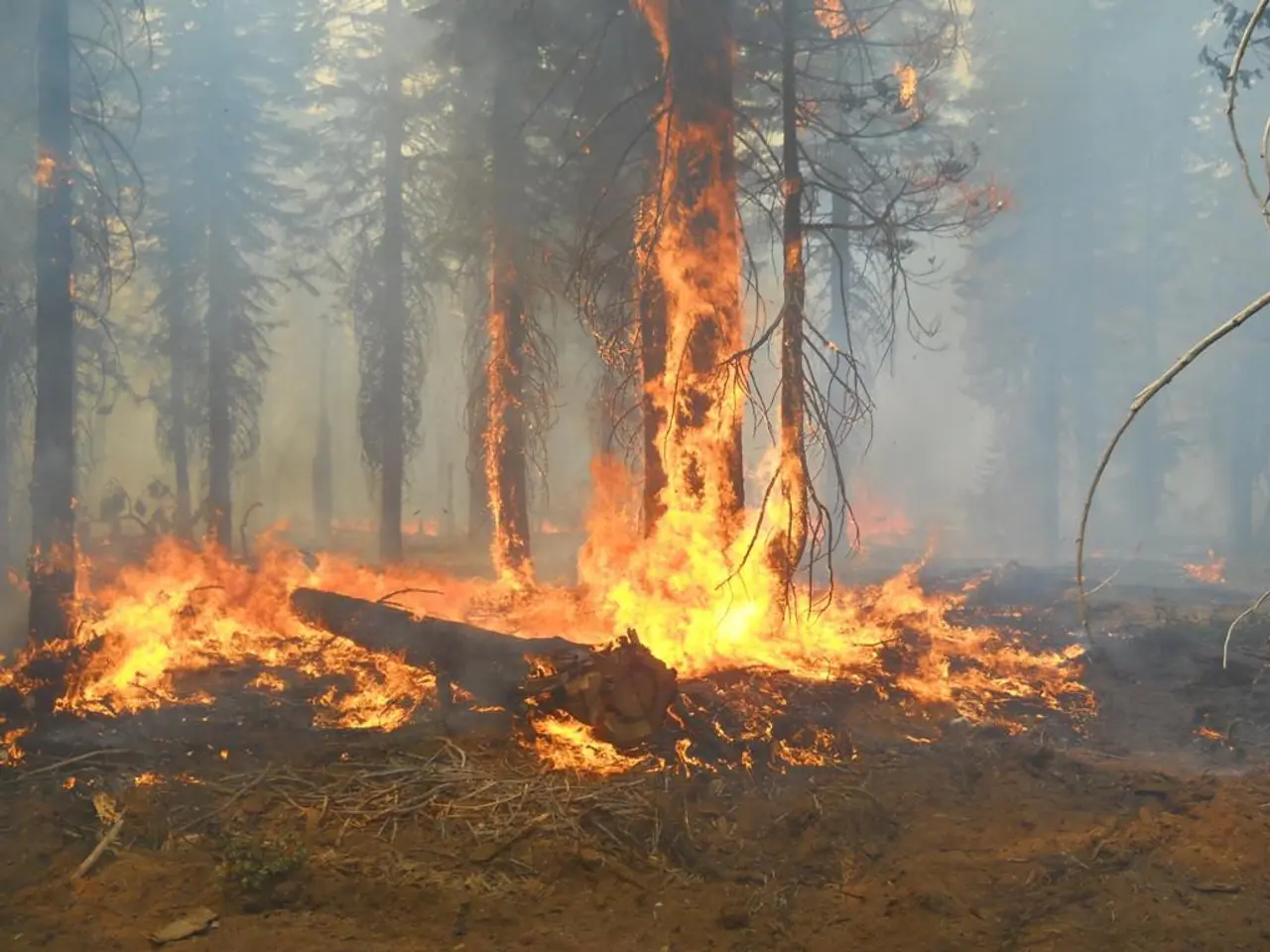Has summer come to submerge entirely underwater?
In contrast to the anticipated "Century Summer" for Germany in 2025, the summer season has proven to be less extreme than predicted. Klaus Hager, a meteorologist with over 50 years of experience, states that the predicted heatwaves, drought, and wildfire danger did not materialize in the Augsburg region.
The weather model used for the predictions, primarily from the USA, has proven to be incorrect. Europe and the Mediterranean region experienced large heatwaves, leading to heat stress, but the temperatures around midday were 15 degrees instead of the predicted 30-35 degrees.
While many parts of Bavaria experienced a dry summer, the highest water temperatures ever recorded in the western Mediterranean were up to 27 degrees. This discrepancy highlights the challenges in precisely predicting the severity and duration of such prolonged heat events.
Weather and long-term forecasts depend on a multitude of factors including global climate models, atmospheric conditions, ocean temperatures, and regional geography. Climate scientists use global climate models to project trends like temperature increases under various greenhouse gas emission scenarios, but these models have limitations in predicting the exact timing and intensity of extreme events in a specific year or season.
Factors like natural variability, local weather patterns, and cross-border climate interactions also play key roles. For example, climate change is causing long-term warming trends in air and river temperatures, such as the Rhine River warming about 0.4°C per decade, which affects regional climates but does not guarantee every summer will be extreme.
Hager, who previously worked as a meteorologist for the German Armed Forces at the Jagdbombergeschwader 32 on the Lechfeld, notes that a more careful approach to nature is necessary. However, he emphasises that the human-caused increase in carbon dioxide in our atmosphere is not the primary factor affecting the weather.
Despite advancements in technology such as computers, larger data collections, and better satellites, the complexity of weather remains a challenge in making accurate long-term forecasts. Thus, long-term forecasts are better considered as trend indicators rather than precise predictions of specific seasonal weather severity.
As we move forward, it is crucial to continue refining our weather forecasting models and techniques to better understand and predict extreme weather events. This will help us prepare for and mitigate the impacts of such events on our environment and society.
Science and climate-change have led climate scientists to project trends like temperature increases under various greenhouse gas emission scenarios. However, the environmental-science surrounding the precise prediction of the severity and duration of extreme events, such as heatwaves, remains challenging.
In contrast to technological advancements like computers, larger data collections, and better satellites, the complex nature of weather and its interactions with the environment makes accurate long-term forecasts difficult, often treating them as trend indicators rather than precise predictions of specific seasonal weather severity.








